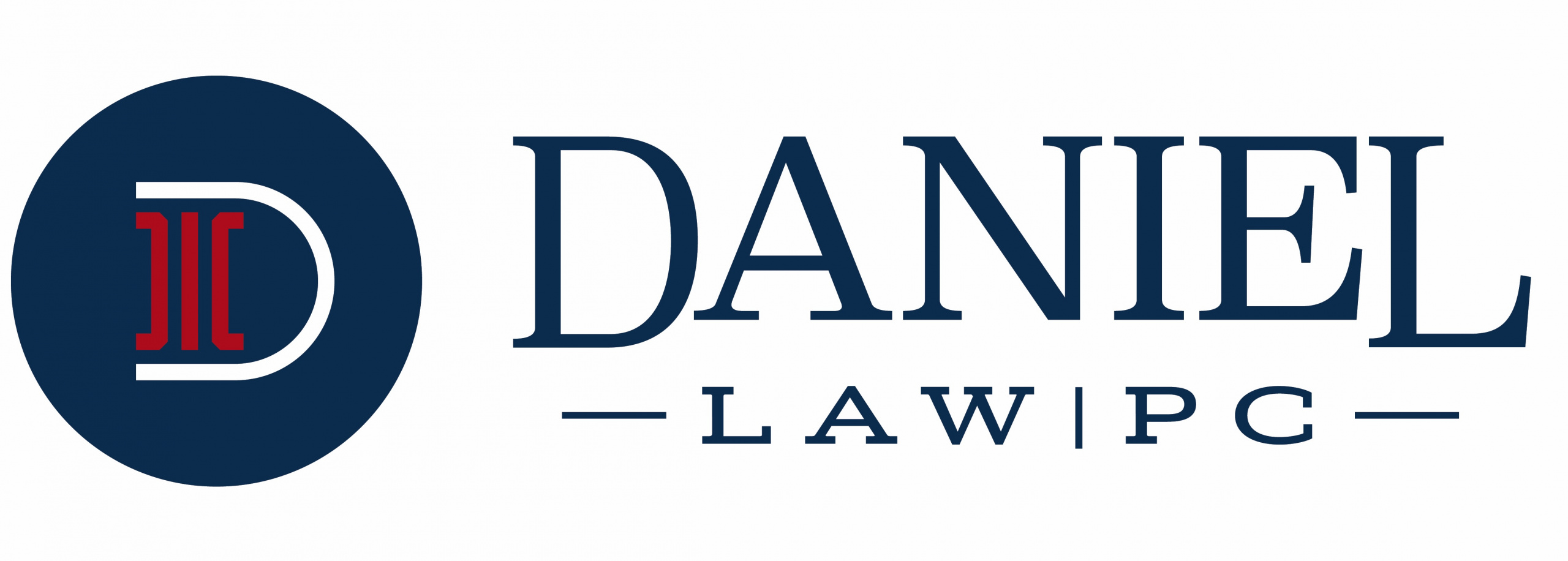When Legal Advice Actually Works in the Real World
Posted by Trevor Daniel | Daniel Law P.C.
A few months ago, I had a client—we’ll call him Mike—who owned a small manufacturing business. He came to me because his attorney had drafted what he called “the perfect succession plan.” The problem? It was so complex that Mike couldn’t explain it to his own family, and it required annual maintenance costs that exceeded what he paid himself in salary some years.
“It might be legally perfect,” Mike told me, “but it’s completely impractical for my actual business.”
That conversation perfectly illustrates why “practical solutions” is more than just a buzzword at Daniel Law P.C.—it’s how we approach every legal challenge.
The Gap Between Legal Theory and Real Life
Here’s something they don’t teach you in law school: a legally sound solution that doesn’t work in practice isn’t actually a solution at all.
I see this disconnect constantly:
- Estate plans that require families to hire multiple professionals just to understand what they inherited
- Business contracts so rigid they prevent companies from adapting to market changes
- Real estate transactions structured in ways that create tax nightmares down the road
- Divorce agreements that look fair on paper but are impossible to implement in daily life
The law provides tools, but tools are only useful if you can actually use them.
What Makes a Solution “Practical”?
When I talk about practical solutions, I’m referring to legal strategies that check three essential boxes:
1. They solve your actual problem. Not a theoretical problem, not a problem someone else might have, but the specific challenge you’re facing right now.
2. They fit your real-world constraints. Your budget, your time, your family dynamics, your business operations—all of it matters when designing solutions.
3. They work long-term. A practical solution anticipates how your situation might change and remains functional as your life evolves.
Let me give you some examples of what this looks like across different practice areas.
Estate Planning: Beyond the Cookie Cutter
Traditional approach: “You need a revocable trust because it avoids probate.”
Practical approach: “Let’s look at what you actually own, how your family makes decisions, and whether the ongoing complexity of a trust makes sense for your situation.”
I had clients last year—a retired couple with a modest home and savings accounts—who were convinced they needed a complex trust structure. After reviewing their situation, we determined that simple wills with transfer-on-death designations would accomplish their goals with 90% less complexity and cost.
On the flip side, I worked with a blended family where the parents wanted to ensure their children from previous marriages were protected. In that case, a trust structure made complete sense because it provided clear guidelines for asset distribution while preventing potential family conflicts.
Same legal tools, completely different applications based on practical considerations.
Business Law: Structures That Support Growth
I remember working with a client who wanted to start a consulting business. Her previous attorney had recommended a complex corporate structure with multiple entities for “asset protection and tax optimization.”
The reality? She was going to be the only employee for the foreseeable future, had minimal liability exposure, and wanted to keep things simple while she got started.
We set up a straightforward LLC with an operating agreement that could be easily modified as her business grew. Total setup time: two weeks. Ongoing compliance burden: minimal. Her ability to focus on building her business instead of managing legal complexity: priceless.
As her business has grown over the past three years, we’ve been able to adapt the structure to meet her evolving needs. That’s what practical planning looks like—starting where you are, not where you might be someday.
Real Estate: Deals That Actually Close
Real estate transactions are notorious for falling apart over details that seemed minor during negotiations. Practical solutions anticipate these issues upfront.
For example, I recently worked on a commercial property sale where the buyer needed financing but the seller wanted a quick close. Instead of structuring it as a traditional sale with financing contingencies (which could have delayed closing for months), we created a lease-to-own arrangement with clearly defined purchase terms.
The seller got immediate cash flow and certainty about the eventual sale. The buyer got time to secure permanent financing without losing the property. Both parties achieved their primary objectives through a structure that worked for their specific situation.
Family Law: Agreements Families Can Live With
Divorce agreements often fail not because they’re legally deficient, but because they don’t account for how families actually function.
I worked with divorcing parents who were initially focused on creating a detailed parenting schedule that accounted for every possible scenario. The problem? Both parents had unpredictable work schedules, and their children were involved in activities that changed seasonally.
Instead of a rigid schedule, we created a framework that prioritized the children’s stability while giving both parents flexibility to adapt to changing circumstances. We included specific communication protocols and decision-making processes that matched how this family actually operated.
Five years later, they’ve never had to go back to court for modifications because the agreement was designed to flex with their real lives.
Why Practical Matters More Than Perfect
As both an attorney and a business owner myself, I understand the tension between legal optimization and practical implementation. Perfect legal solutions often require perfect circumstances, perfect compliance, and perfect ongoing maintenance. Real life is messier than that.
Practical solutions acknowledge that:
- Budgets are real constraints, not inconveniences
- Family dynamics matter more than organizational charts
- Simple systems are more likely to be followed than complex ones
- Future flexibility often matters more than present optimization
The Real-World Experience Advantage
One advantage I bring to client solutions is experience outside the legal profession. As a licensed real estate broker, I understand how property transactions actually work in practice. As a business co-owner, I know firsthand the challenges of managing compliance while trying to grow a company.
This experience helps me spot potential practical problems before they become actual problems. It also helps me design solutions that work within the constraints of how business and life actually operate.
Balancing Legal Protection with Practical Implementation
Some clients worry that “practical” means “less legally sound.” That’s not the case. Practical solutions are still legally robust—they’re just designed with implementation in mind.
For example, a business operating agreement doesn’t need to address every conceivable scenario if it includes clear processes for making decisions about unexpected situations. This approach provides legal protection while maintaining flexibility.
Similarly, an estate plan doesn’t need to minimize every possible tax consequence if doing so creates complexity that the family can’t manage. Sometimes the practical approach is accepting a modest tax cost in exchange for a plan that family members can actually execute.
Questions That Lead to Practical Solutions
When clients come to me with legal challenges, I ask questions that help identify practical solutions:
- “What does success look like for you in this situation?”
- “What constraints do we need to work within?” (budget, timeline, family dynamics, business operations)
- “How do you prefer to handle complex decisions?”
- “What would make this solution easy for you to maintain long-term?”
- “What’s worked well for you in similar situations?”
These questions often reveal insights that pure legal analysis would miss.
The Long-Term View
Practical solutions also consider how your situation is likely to evolve. Business structures need to accommodate growth. Estate plans need to account for changing family dynamics. Real estate strategies need to consider market changes.
This means sometimes recommending solutions that might seem “over-engineered” for current needs but provide flexibility for future changes. Other times it means starting simple with clear upgrade paths as situations become more complex.
Making Complex Simple (Not Simplistic)
There’s an important distinction between practical solutions and oversimplified solutions. Practical doesn’t mean we ignore important legal protections or skip necessary steps. It means we design solutions that provide appropriate protection in ways that make sense for your specific situation.
For instance, asset protection planning can involve sophisticated legal structures, but the triggers and processes for using those structures should be clearly understood by the people who need to implement them.
The Bottom Line
Legal problems require legal solutions, but those solutions need to work in the real world. At Daniel Law P.C., we combine deep legal knowledge with practical experience to create strategies that protect your interests while fitting your actual life and business operations.
Whether you’re planning for the future, buying property, structuring a business deal, or resolving a family matter, the goal is always the same: solutions that are legally sound and practically implementable.
Because the best legal strategy is the one that actually works.
If you’re looking for legal solutions that work in practice, not just on paper, contact Daniel Law P.C. We help clients throughout Michigan and Florida with estate planning, probate, real estate, business law, family law, and personal injury matters.
📍 Serving clients in Northville, Allen Park, and throughout Michigan and Florida
📞 734-984-0800
📧 info@daniellawpc.com

